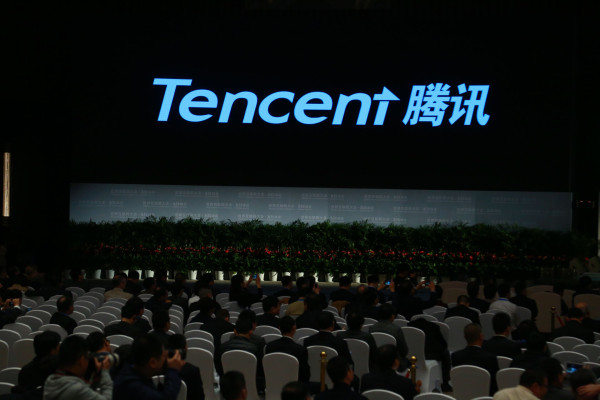The world is still years away from wide-scale 5G networks — which proponents say will bring a new generation of services connecting people and objects in the Internet of Things — but those hoping to have a role in that economy are getting themselves in place now to capitalise on them for when they do arrive. Today comes the latest development on that front: Nokia and internet giant Tencent announced that they will work together on 5G R&D and applications, including leveraging Tencent’s billions of users — among other things, it owns messaging networks WeChat and QQ, which alone account for over 1 billion users — to test and roll out its services.
The financial terms of the deal have not been disclosed but we have contacted Nokia to see if it can provide more detail. The two note in their announcement that the deal will include a lab in Shenzhen, and that apps will be created targeting sectors including transportation, finance, energy, intelligent manufacturing and entertainment. Technologies that will tested include Edge Computing, “Cellular Vehicle-to-Everything” and delivering cloud-based gaming and entertainment — areas that touch on what many think will define the next generation of hardware (connected cars) and architecture (cloud-based services becoming even more ubiquitous and therefore straining networks further).
China has so far proven to be a very lucrative market for building new tech services. Not only does its massive population (and subsequently large number of people using tech services) mean that you have a lot of scale, which is important for, say, training AI services or battle-testing new technologies; but also, the country is known for more relaxed policies when it comes to how user data is collected and stored, which can also be a significant attribute when working on new technologies. (Note: that last part might be changing down the line.) Tencent — as the owner of two of the world’s biggest messaging services — is an especially key partner in this regard.
This is a significant deal for both companies. For Nokia, the company today is not a direct, major player in mobile phones and subsequent consumer services: it lost market share years ago for its own handset business and ultimately ended up selling it off (it now licenses the name to HMD, and has many other licensing deals for hardware and software patents with other handset makers); it then it sold off its Here maps business; and it most recently pulled out of its efforts in health-related hardware and services.
5G presents an opportunity to revisit Nokia’s role once again, both as a network services provider as well as a developer of services to run on those networks.
“This collaboration with Tencent is an important step in showing webscale companies around the globe how they can leverage the end-to-end capabilities of Nokia’s 5G Future X portfolio,” said Marc Rouanne, president of Mobile Networks at Nokia. “Working with them we can deliver a network that will allow them to extend their service offer to deliver myriad applications and services with the high-reliability and availability to support ever-growing and changing customer demands.”
For Tencent, the company already has a huge number of users, and last year it was part of a consortium (with Alibaba, Didi and Baidu) that took at $12 billion stake in mobile operator China Unicom. That partnership will give the company — which has made its fortune in software — messaging apps, games and other services — a stronger place in building services that are more tightly integrated with networks. And this deal with Nokia will extend that kind of work specifically in the area of 5G.
“We are pleased to collaborate with Nokia to leverage the technologies, products and expertise of both our companies to fufill the growing demands of a digital economy driven by 5G,” said Zeng Yu, Vice President at Tencent, in a statement. “Tencent and Nokia are fully committed to delivering richer, more diverse, multi-level services and applications for enterprises, and individual customers. Furthermore, we will support each other in creating more financial and social benefits in our respective fields, to pursue success in the new era of digital economy.”
Recall that Tencent has had an extended connection to Nokia.
The company was among those we heard were interested in acquiring Nokia’s Here mapping assets, before they were ultimately sold to a car consortium in Europe. Later, Tencent yet again tried to acquire a stake in the Here business, although regulators thwarted those plans as well.
But Tencent’s interests in location-based services has remained: among other things, it has a stake in Sensewhere, an indoor mapping company. Forging a partnership with Nokia now on 5G — which has a strong mapping and location-aware component to it can help bring strategic investments like these into sharper focus.

COMMENTS